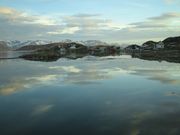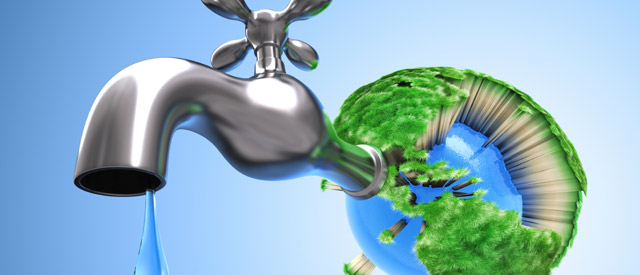 Is greywater safe for irrigation?
Is greywater safe for irrigation?
'Greywater' that is recycled from household washing can be used to irrigate home gardens, according to a new study by Jordanian researchers. The researchers found that treatment units supplied by the Jordanian government produced small quantities of recycled water that could be used to irrigate gardens, whilst meeting national standards for irrigation of trees and many home-grown crops.
Water is scarce across much of Europe, especially where summer temperatures are high, and methods for safely recycling water are increasingly in demand. Last year, the European Environment Agency highlighted the problem of water shortage in Europe and recommended that harvested rainwater and greywater from showers and kitchen sinks could be used for flushing toilets and watering gardens1. In some countries, such practices are already commonplace. In Jordan the government provided over 750 low-income households in 2003 with greywater treatment units to help cope with water shortages.
However, the problem with greywater is that without proper treatment it may retain increased levels of elements that are harmful to the soil and the crops or trees that grow in it. One particular concern is sodium, which in higher concentrations can damage soil permeability and structure, ultimately reducing crop yields.
The researchers monitored sodium levels, as well as levels of other potentially damaging elements, to establish whether water produced by the treatment units and used for irrigation was meeting Jordanian standards. The results may be applicable to areas of Europe suffering from water shortage.
They found that the treated water complied with standards for irrigation of fodder crops and tree crops, including olive trees. However, it did not meet standards for vegetables that must be cooked before eating. For these crops, maximum allowable limits for suspended solids and nitrates are lower, and standards for other water quality indicators are more difficult to meet.
Importantly, sodium levels were within the allowable limits, although the researchers did notice that concentrations of sodium and organic matter increased over time. The leaves and fruits of olive trees were tested and were found to have suffered no ill effects from recycled water. Olive trees are known to be able to tolerate slight increases in salt, which the researchers say makes them suitable for greywater irrigation. Occasional leaching (deliberate flushing) with fresh water may be a way to reduce build up of salts and organic matter in soils irrigated with greywater, according to the researchers.
| Contact information |
Source: Al-Hamaideh, H. and Bino, M. (2010). Effect of treated grey water reuse in irrigation on soil and plants. Desalination. 256: 115-119.
(email: husamh@mutah.edu.jo) |
|---|---|
| News type | Inbrief |
| File link |
http://www.eea.europa.eu/publications/water-resources-across-europe |
| Source of information | EEA Report No 2/2009. 'Water resources across Europe - confronting water scarcity and drought' |
| Keyword(s) | greywater, irrigation, drought |
| Subject(s) | AGRICULTURE , CHARACTERISTICAL PARAMETERS OF WATERS AND SLUDGES , DRINKING WATER AND SANITATION : COMMON PROCESSES OF PURIFICATION AND TREATMENT , HEALTH - HYGIENE - PATHOGENIC MICROORGANISM , HYDRAULICS - HYDROLOGY , POLICY-WATER POLICY AND WATER MANAGEMENT , PREVENTION AND NUISANCES POLLUTION , RISKS AND CLIMATOLOGY , WATER DEMAND , WATER QUALITY |
| Geographical coverage | International |
| News date | 18/06/2010 |
| Working language(s) | ENGLISH |
 you are not logged in
you are not logged in





